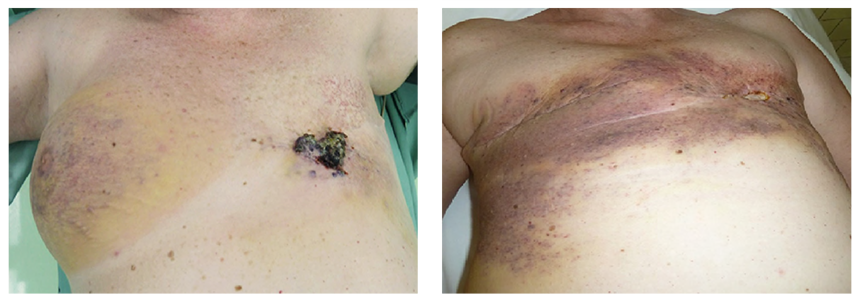Radiation therapy is a treatment that uses high-energy rays to target and destroy cancer cells. This process can also affect healthy cells, which sometimes leads to side effects. Understanding potential changes can help you prepare for and manage your treatment journey. Here are a few of the potential side effects of radiation therapy:
Skin and Tissue
Radiation therapy sometimes affects the skin and surrounding tissue in the treated area. Individuals often notice mild redness, dryness, or sensitivity, while others experience temporary irritation or tenderness. These changes typically remain localized and vary depending on the treatment location and dosage. Oncology teams monitor the skin closely throughout therapy and guide care.
Managing skin and tissue effects includes gentle care and observation. Moisturizing, avoiding harsh products, and protecting the area from sun exposure support comfort. Regular check-ins with the oncology team allow adjustments to minimize discomfort. Following professional guidance promotes overall well-being during treatment and facilitates effective skin recovery.
Fatigue and Energy
Fatigue often accompanies radiation treatment, and energy levels may fluctuate throughout treatment. Tiredness can vary from mild to more noticeable, building gradually over the course of therapy. Paying attention to the body’s signals and incorporating periods of rest helps support overall well-being. Gentle activity, when energy allows, contributes to maintaining strength and stamina during treatment.
Digestive System Changes
Radiation therapy targeting the abdomen or pelvis may affect the digestive system. Every day experiences include nausea, changes in bowel movements, or reduced appetite. These effects typically resolve over time, and monitoring symptoms helps track progress throughout treatment.
Dietary adjustments and supportive measures support comfort during therapy. Maintaining hydration and balanced nutrition contributes to overall well-being and helps preserve strength. Oncology teams provide guidance to help manage digestive changes and maintain optimal daily energy levels.
Emotional Wellbeing Considerations
Going through radiation therapy may influence emotional well-being. Experiencing a range of feelings, such as anxiety, sadness, or frustration, is common. Many people experience mood fluctuations throughout treatment, which can impact their sleep, appetite, and overall energy levels. Sharing your emotions often provides support and relief, helping you cope with the ongoing changes.
Connecting with supportive people or services can be beneficial:
- Friends and family
- Support groups
- Counselors or therapists
Your care team can offer guidance and suggest additional resources for emotional support. Participating in group sessions or talking with others who have similar experiences may provide reassurance and practical coping strategies. Mindfulness exercises, journaling, or relaxation techniques can complement emotional care and help maintain resilience throughout therapy.
Moving Forward with Radiation Therapy
Your care team is your partner throughout radiation therapy. They will discuss what to expect and create a plan to manage any side effects. By working together, you can navigate the treatment process effectively. They provide guidance on symptom management, lifestyle adjustments, and daily routines to help maintain comfort and well-being. Regular check-ins allow adjustments to your care plan, offering reassurance and support. Stay informed about potential side effects and reach out to your care team for advice and resources whenever needed.

